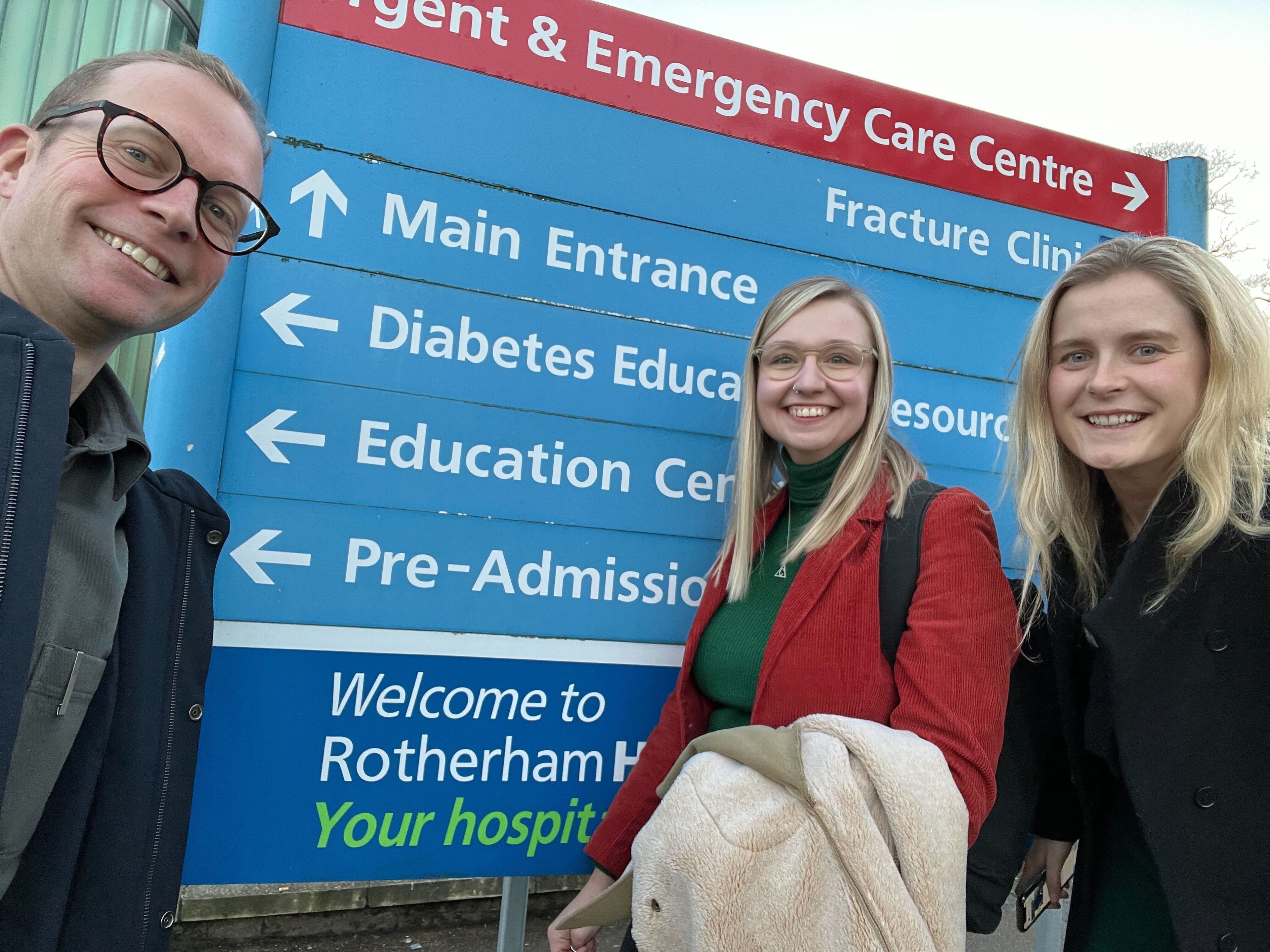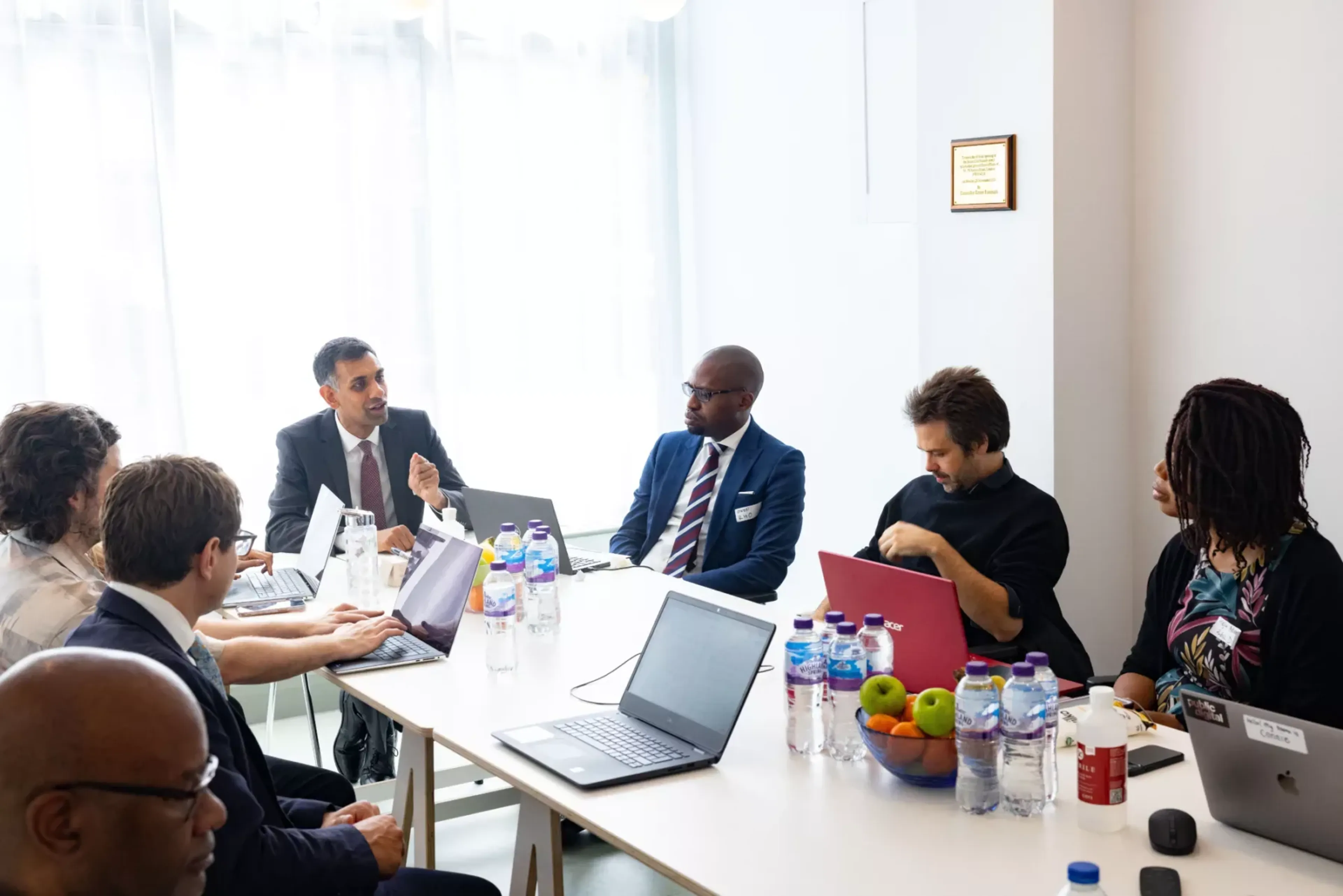
Health and care
We work with health and social care organisations around the world to achieve the full promise of digital, and radically improve outcomes.

This week, we focused on:
Starting our user research with people with lived experience of sickle cell
Organising lots more user research sessions - both with people with sickle cell, and healthcare professionals who have a responsibility to care for them
Sharing our work with some very interesting and important people, who will be crucial to the success of this work
We spoke to two people who have sickle cell this week, who were very generous and open in sharing their experiences with us. We’re very grateful to them, and to everyone who is giving up their time to talk to us. We’re learning so much.
As someone listening to these stories, they are shocking to hear. We hope this work goes a long way to amplify the voices of people with sickle cell.
We also had an insightful conversation with Dr Sanne Lugthart (a Haematology Consultant and Lead at the Haemoglobinopathy Coordinator Centre South-West) about what helps people with sickle cell - and those that are caring for them - to manage and monitor their condition, both on a day to day basis, and when they are having a crisis. We spent a lot of the conversation discussing the pros and cons of things like personalised care plans, access to specialists and multidisciplinary clinical teams, and the importance of trust in enabling people with sickle cell to manage their condition themselves.
We are going to visit University Hospitals Bristol and Weston NHS Foundation Trust this Monday, where we will be speaking to four more people about their experiences of living with sickle cell and the treatment they receive when they are having acute painful episodes.
We want to say a huge thank you to Dr Sanne and her team for all of their support in speaking to us, helping us find other people to speak to, and in hosting us.
On Wednesday, we had the absolute pleasure of meeting Faith and Paulette from the Friends of Cymru Sickle Cell & Thalassaemia CIC. We spent some time talking to each other about the work we’re each doing, and we started to think about how we can support each other - and in particular, to make sure the voices of the sickle cell community in Wales are heard. We have decided to meet again in a month, to check in on opportunities for collaboration and testing ideas once the Public Digital team have analysed and synthesised what we’ve learnt from the user research.
The Friends of Cymru Sickle Cell & Thalassaemia do incredible work in Cardiff: they are sickle cell warriors, carers and activists supporting families and making a real difference for people with sickle cell in Wales. We're really excited about the opportunity to work together. Thank you for your time, Faith and Paulette.
We also updated Amanda Pritchard and senior colleagues at NHS England on our progress to date and future plans, including our digital discovery work at University Hospitals Bristol and Weston NHS Foundation Trust.
As well as visiting Bristol on Monday and speaking to more people their about their experiences with sickle cell, we will also be:
Kicking off our research with non-sickle cell expert healthcare professionals, with a workshop reflecting on what helps and what gets in the way of delivering excellent sickle cell services
Beginning to analyse and synthesise our research so far, and starting to identify important themes to build on when considering possible digital intervention
Meeting more people who have reached out to us after reading our weeknotes, to find opportunities to support each other and work together
The sickle cell digital discovery project was commissioned as a result of an inquiry published by the All Party Parliamentary Group on Sickle Cell and Thalassaemia and the Sickle Cell Society, which ‘found “serious care failings” in acute services and evidence of attitudes underpinned by racism.’ Their findings were published in a report called No-one's Listening.
We refer back to the No-one's Listening report regularly to help guide the work that we are doing. Most recently, we have used its findings to inform our user research learning goals.
It is vitally important reading and we encourage you to read it too.
We continue to be thrilled by the amount of people who are getting in touch with us to share their thoughts, volunteer to get involved and support this work. As always, please do not hesitate to get in touch with us by emailing connie@public.digital if you have anything you'd like to say.